| Zeitschrift Umělec 2006/1 >> A Conference | Übersicht aller Ausgaben | ||||||||||||
|
|||||||||||||
A ConferenceZeitschrift Umělec 2006/101.01.2006 Jiří Ptáček | geschichte | en cs |
|||||||||||||
|
Johanna Billing – Alan Currall, Display + Tranzit, Prague, October 11 to 30, 2005
In October 2005, Czech Umělec editor Jiří Ptáček received an invitation to a conference. The subject of the conference wasn’t on the invitation, but as it was organized by his good friend, and since in this business that’s what counts, Ptáček decided to attend. At the right time, he arrived at the right place, in Holešovice, Prague. He couldn’t find his good friend in there, but there were the stewards of the institution that housed the conference. They invited him in, politely. Ptaček Continues: “What is it about?” I asked curiously. The stewards stopped in their tracks: “Don’t be angry with us, we are only the stewards. Your friend didn’t leave any information for us. But we know there will be two lecturers today. Alan Curral from Great Britain and Johanna Billing from Sweden. Just sit down and listen. It is done so that they will repeat their report to everybody, even individually.” I liked the idea. One of the stewards prepared a cup of coffee for me and I sat on a chair at the makeshift table made of a board on two stands. Alan Curral entered. A thin and pleasant man. He sat at the microphone and started reading. It took awhile until I realized that he was speaking English. What had I expected, of course. I hope I am not exaggerating when I say my English is average. It’s neither bad nor good. In the Czech Republic I am sad evidence of the common standard of education. When I concentrate, I can understand. I understood Alan very little. It crossed my mind that he might speak to his friend as if it was me, and he might be eulogizing him (or me). But the details were lost. “Jesus, he doesn’t pronounce anything. He speaks with his mouth closed.” I looked around to see if there was an interpreter. Only the stewards and I were in the hall. Disappointed, I started contemplating the anglophonic hegemony that has been ruling the international conferences recently. Foreigners end up in an subordinated position of the “slower, more passive and less skillful.” But is it the Englishmen’s fault that the conference organizers decided to choose their language as the right one? “And god knows which dialect he is speaking.” I turned to the stewards. “Where is he from?” “Somewhere near Glasgow. But he wasn’t born there.” “But how do I know how they speak in Glasgow. That’s Scotland, isn’t it?” I started concentrating on the lecturer again. During my conversation with the stewards Alan moved to another table. Much more lively he started speaking about a new theme. At the same time, Johanna Billing entered the next room. And with her an orchestra and a children’s choir. They tuned their instruments and started playing and singing something about a “magical world.” Although they completely drowned out Alan’s speech, I didn’t want to be impolite, so I kept on sitting. But Alan got up and started taking off his T-shirt. As he was moving around, he hit the microphone. He showed me his skinny body and strangely twisted it. Because I couldn’t hear his commentary over the singing of Johanna’s Billing children, I still don’t know what he wanted to tell me with these movements. I quickly apologised and went to look into the other room. The choir was still singing about the magical world. They had it charmingly rehearsed. I was thinking I would like to know who these children are, and I hoped that Johanna would explain that towards the end. Instead of that she gave an instruction for the repetition of the performance. They were tuning and singing again. “There at the back is Alan lecturing again,” one of the stewards said, indicating the entry of the third room. With trepidation I went with him. I think Alan already knew what the problem was. The last lecture consisted of simple advice said in one sentence and with an effort to make pauses so that I could understand what he was saying. Altogether it was like an excerpt of the most influential phrases from a psychological self-help book of the kind of “How to be happy, loved and successful at work.” A phrase after a phrase, thank god... phrases are always more understandable than original thoughts. I was overwhelmed by the feeling of gratitude. I was lost in translation only when Alan used some archaic expression. “Where does he get it from?” I thought. Alan wasn’t giving me the details, but I had the feeling that his serious face revealed something ironic. Next door the children were screaming their song about a magic world. Within a quarter of an hour everything was finished. I thanked them and said goodbye. Before I left, I caught a glimpse of Alan again. He was answering phones in the office of the stewards. He was circling round the phone and before picking it up. Probably his incompetent employees were calling him, because he kept explaining to them that they are sacked. I said to myself I wouldn’t disturb him anymore. On my way home I was thinking about my good friend. Why had he organized such a conference? Did it get out of his hands? Or was that the intention? The next day I wrote a letter to him, asking for an explanation. He still hasn’t answered me. Cast: Alan Curral – English artist exhibiting his four monologues on a video at Display Johanna Billing – English artist exhibiting one video with an orchestra and a children’s choir at Display. Good friend – the curator of the Vít Havránek exhibition Stewards – the gallery owners of Display The themes for discussion: Why didn’t the curator give the visitors a better chance to understand Alan Curral’s monologs? The technologies for work and presentation of DVDs allow us to watch movies without titles but also with them. Why did he limit the autonomy of the individual works by overlapping the soundtracks? In galleries where they are having problems with shielding the sound they usually use headphones. Further: are the tactics of Havránek linked with an intentional lack of additional information? Is it an aesthetic strategy whose meaning is to follow only our perceptions from the mix of artefacts? Should we have realized that when other people try to explain something to us, we shouldn’t cherish illusions to understand them? Would the translation of Alan Curral’s monologs manipulate the message too much? It is difficult to decide what the curator should disentomb, what to admit and where to take us. Among the visual artists and their curators the opinion prevails that it would be useless to strive for the entry into the cultural mainstream. They realize the limitedness of their own tools. Then, sometimes, the things in film or home cinema we would consider intolerable neglect, in a gallery we understand as an attitude. We don’t take as serious that this ideology sometimes damages the artists. The works of Alan Curral and Johanna Billing were exceptional, the attitude of the curator debatable.
01.01.2006
Empfohlene Artikel
|
|||||||||||||
|
04.02.2020 10:17
Letošní 50. ročník Art Basel přilákal celkem 93 000 návštěvníků a sběratelů z 80 zemí světa. 290 prémiových galerií představilo umělecká díla od počátku 20. století až po současnost. Hlavní sektor přehlídky, tradičně v prvním patře výstavního prostoru, představil 232 předních galerií z celého světa nabízející umění nejvyšší kvality. Veletrh ukázal vzestupný trend prodeje prostřednictvím galerií jak soukromým sbírkám, tak i institucím. Kromě hlavního veletrhu stály za návštěvu i ty přidružené: Volta, Liste a Photo Basel, k tomu doprovodné programy a výstavy v místních institucích, které kvalitou daleko přesahují hranice města tj. Kunsthalle Basel, Kunstmuseum, Tinguely muzeum nebo Fondation Beyeler.
|







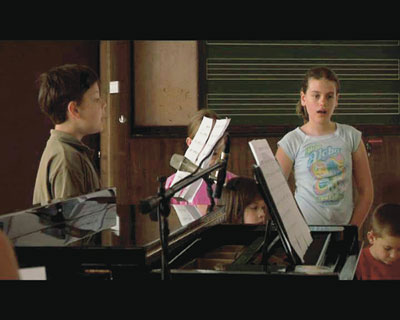
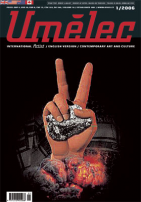


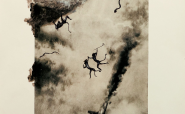

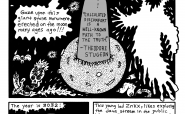
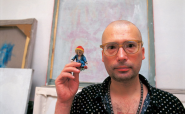







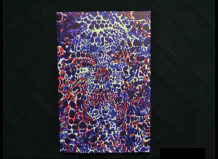




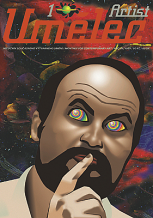
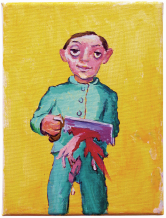
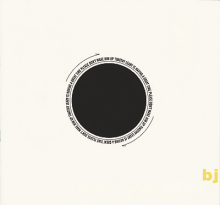
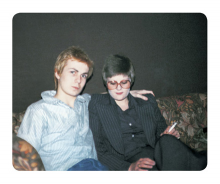


 New book by I.M.Jirous in English at our online bookshop.
New book by I.M.Jirous in English at our online bookshop.
Kommentar
Der Artikel ist bisher nicht kommentiert wordenNeuen Kommentar einfügen